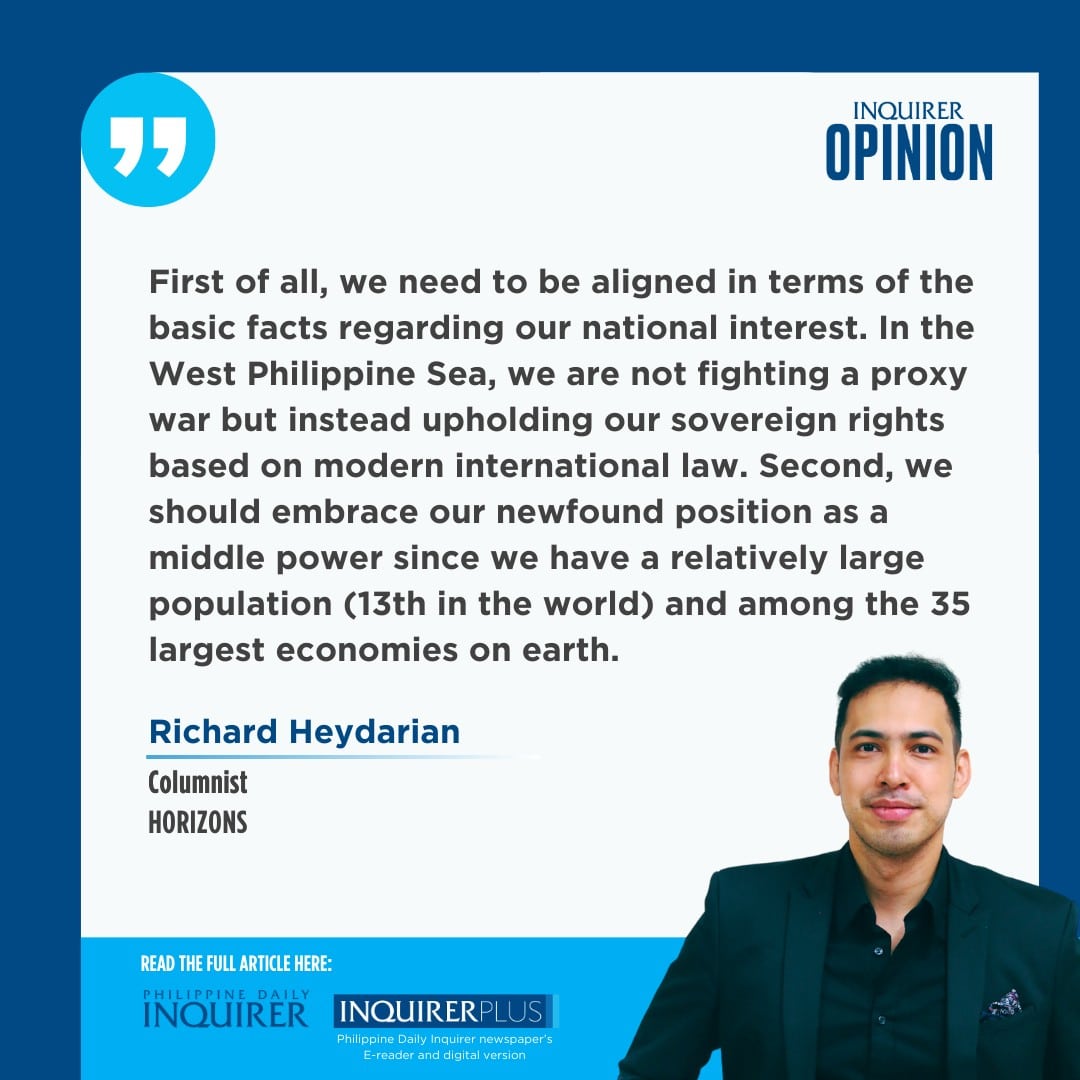A ‘Philippines First’ foreign policy
We don’t know who will become America’s next president. Even after dramatically surviving an assassination attempt, Donald Trump is no longer the favorite in the race. By all indications, Vice President Kamala Harris is reconsolidating the Democratic base, thus making swing states in both the Rust Belt (Pennsylvania, Wisconsin, and Michigan) and Sun Belt (Arizona, Georgia, and North Carolina) extremely competitive. But the outcome of the elections will likely be decided in a few swing counties in a few swing states.
What’s more certain is that America is heading for a contentious post-election landscape. And the world will have to buckle up with a potentially unstable America in the near future. Undoubtedly, the Europeans have the most to lose if Trump comes back to power or, alternatively, America embraces a more insular and isolationist foreign policy doctrine.
In fairness, top Republican strategists such as Elbridge Colby have made it clear to me that they would zero in on the threat from China and, accordingly, ramp up their defense aid to frontline allies such as the Philippines should they prevail in the November elections. On his part, our ambassador to Washington, Jose “Babe” Romualdez, has underscored the “bipartisan” commitment to the US-Philippine alliance in America during our recent conversation.
But the reality is that no one can say for sure what Trump’s policies and moods will be should he retake the White House. Nor is it clear how a Democratic administration will cope with yet another post-election denialism and populist backlash. Either way, some form of isolationism and protectionism will almost certainly undercut America’s long-term commitment to a liberal international order.
No less than US Defense Secretary Robert Gates has warned that the US will likely transform into a “dysfunctional superpower.” Even President Marcos, known for his measured language and statesmanlike temperament, has hinted at growing concerns among Asian allies over the direction of American politics.
During the recent “Two Plus Two” summit in Manila, he candidly told his American visitors, Secretary of State Antony Blinken and Secretary of Defense Lloyd Austin III: “I am a bit surprised considering how interesting your political situation has become back in the [US], but I’m glad that you’ve found the time to come and visit with us.”
Accordingly, it’s important for us to craft a “Philippines First” foreign policy, which protects our core national interests as well as hedges against any potential turbulence in the international system. To this end, I recently launched a new forum at Café Adriatico. The inaugural episode of the UTAK (Usapan Taft at Katipunan) Forum brought together among the country’s leading strategists, namely former vice admiral Rommel Jude Ong, former associate justice Antonio Carpio, former political affairs secretary Ronald Llamas, National Security Council Undersecretary Jonathan Malaya, and Philippine Coast Guard Commodore Jay Tarriela.
With our forum coinciding with yet another breaking news in the West Philippine Sea—the collision between Chinese and Philippine vessels not too far from the Sabina Shoal—it was a standing-room event. The two-hour-long conversation is available online, but allow me to focus on three key takeaways.
First of all, we need to be aligned in terms of the basic facts regarding our national interest. In the West Philippine Sea, we are not fighting a proxy war but instead upholding our sovereign rights based on modern international law.
Second, we should embrace our newfound position as a middle power since we have a relatively large population (13th in the world) and among the 35 largest economies on earth. If anything, we are set to allocate up to $35 billion to modernize our defense capabilities. Meanwhile, we should double down on our own multi-alignment strategy by proactively developing strategic ties with a full range of like-minded powers from Japan to India and Germany. Instead of aligning with any superpower against another, we should leverage our existing alliances to enhance our strategic agency.
And finally, we need a whole-of-nation approach in the face of China’s full-spectrum attempt at sowing divisions and influencing our domestic politics. We can learn from robust democracies from Australia to Taiwan and Canada how to counter malign foreign influence while preserving our core democratic freedoms. Ultimately, we need to foster internal cohesion, self-reliance, and optimize our role as a pivotal state in the most dynamic region of the 21st century.
—————
rheydarian@inquirer.com.ph





















